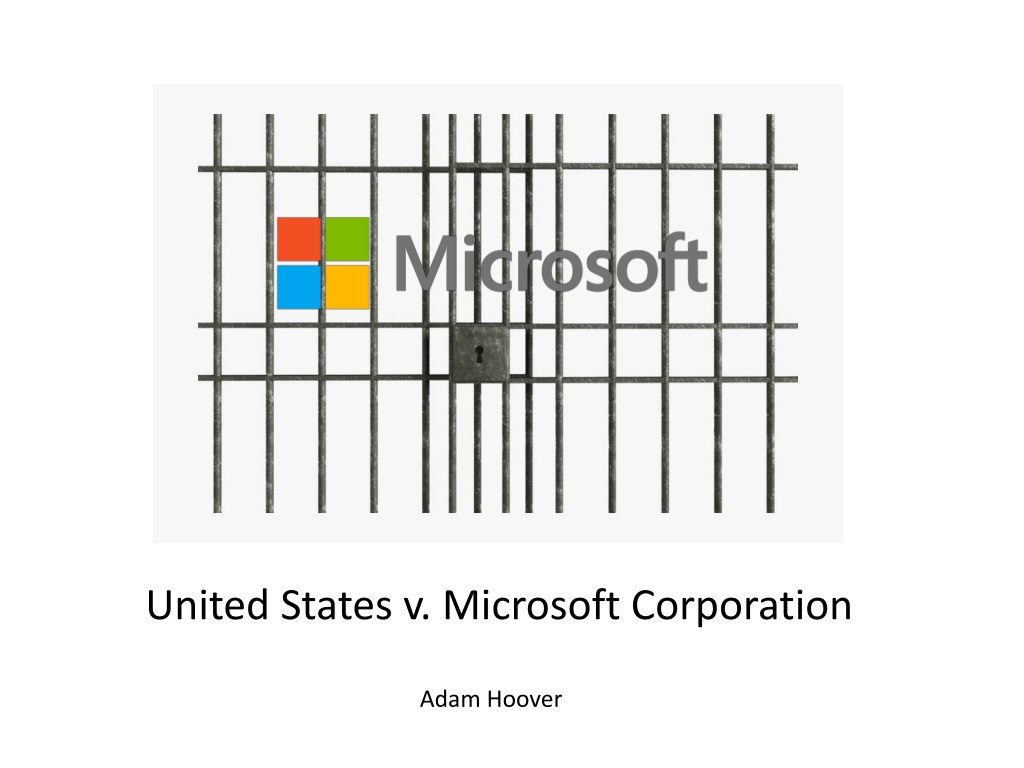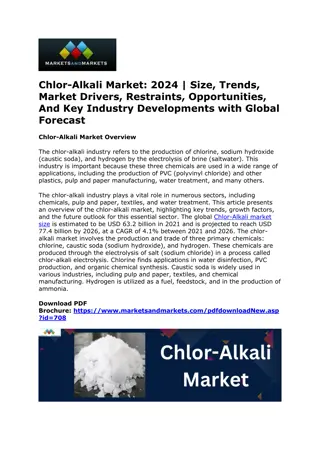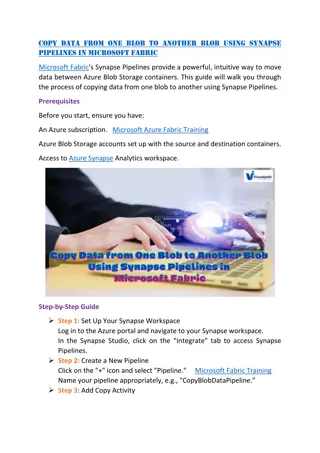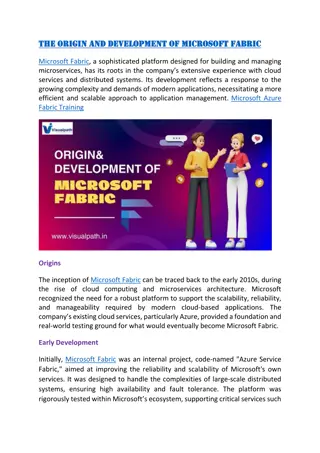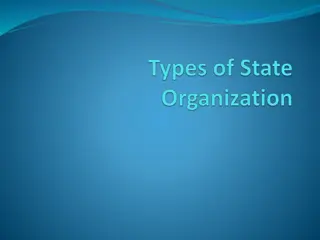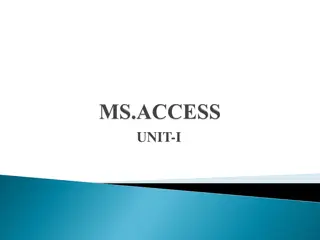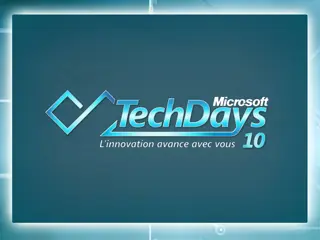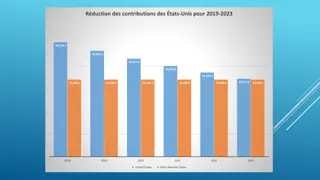United States v. Microsoft Corporation
The historical significance of Standard Oil and United States v. Microsoft Corporation in the context of antitrust laws, monopolies, and business practices. Learn about the rise of megacorps through efficiency, integration, and market dominance, contrasting wealth accumulation with royal fortune. Delve into the principles of free enterprise and fair market competition, highlighting the importance of consumer choice and government oversight.
Uploaded on Mar 07, 2024 | 5 Views
Download Presentation

Please find below an Image/Link to download the presentation.
The content on the website is provided AS IS for your information and personal use only. It may not be sold, licensed, or shared on other websites without obtaining consent from the author.If you encounter any issues during the download, it is possible that the publisher has removed the file from their server.
You are allowed to download the files provided on this website for personal or commercial use, subject to the condition that they are used lawfully. All files are the property of their respective owners.
The content on the website is provided AS IS for your information and personal use only. It may not be sold, licensed, or shared on other websites without obtaining consent from the author.
E N D
Presentation Transcript
United States v. Microsoft Corporation Adam Hoover
Outline Standard Oil Anti-trust laws (United States) Court cases, remedies Monopolies Network externals (technology) Microsoft Google, Facebook, Amazon
Standard Oil Founded 1870 by J.D. Rockefeller in Ohio Primary product was kerosene, used for heat and lighting
Standard Oil How did Standard Oil become a megacorp ? Business practices: Efficiency Kerosene yields gasoline as a byproduct Most manufacturers dumped it in rivers Standard Oil used it to power their machines Horizontal integration Bought manufacturers in neighboring counties, then states Sometimes shut down companies after purchase Pressured other companies through price/volume Vertical integration Made deals with railroad companies to transport product Locked railroads into monopoly deals
Standard Oil (fable?) Rival company pumped oil through pipeline Pipelines have to cross land owned by railroad companies Rockefeller told railroad company to not allow pipeline in their land Rival company used barrels to cross railroad and reenter pipeline Rockefeller ordered empty trains parked in the way
Wealth vs Royalty Wealth = control, in business, politics and society USA applauds gain of wealth to a point King George III, England, 1738-1820 Royal family wealth today = $88 billion JD Rockefeller, USA, 1839-1937 $400 billion (adjusted), 2% of US GDP
Free enterprise Free enterprise requires a free market, aka level playing field Consumers ultimately decide which businesses win or lose
Fair market Vendors can advertise, offer sales, and take actions to induce trade Vendors cannot threaten or lie about competitors (false advertising) fair . unfair Government s job is to watch the market and ensure fairness
Government vs Standard Oil State governments started passing laws limiting company ownership Rockefeller invented trust company company owning another company 1890 US Congress passed the Sherman Antitrust Act Illegal to conduct practices that restrain trade Example: conspiracy to control market (competitors colluding) US government brings suit against company, must prove illegal acts Remedy How do you put a company in jail? Cannot kill , company providing important service to society Break company up Supervise compliance with free market practices (fines)
Breakup of Standard Oil In 2020 still in list of top 10 richest companies in the world
The battle continues 1914 US Congress passed the Clayton Antitrust Act Enumerated additional illegal practices: Price discrimination between multiple buyers Exclusive dealings that lessen competition Product tying that lessens competition Ownership in competitor companies Mergers and acquisitions that lessen competition
Companies prosecuted 1969, IBM -> voluntarily separated hardware/software sales 1982, AT&T -> Baby Bell companies (e.g. Bell South) 1987, Coca Cola and Pepsi -> price fixing (fines) 2014, NCAA -> still in progress 2020, Google, Amazon, Facebook all being watched closely
Monopolies Natural monopoly is okay For some services it saves redundant infrastructure costs Utilities: electricity, garbage collection, water, internet(?) Government provides assistance managing monopoly Monopoly leveraging is not okay Cannot use an existing monopoly to bully into another market E.g. electric company cannot demand you buy milk from them to get service
Product competition Does the best product always win? Historically, yes! Example: A poor-tasting cereal is unlikely to gain customers
Network externals Does the best technology always win? Almost never Examples: 1980, Beta vs VHS, video recording MS Word vs other word processors Network externals = value of product tied to how many people using it Does not matter for widgets (stuff) but matters very much for technology Very controversial idea, circa 1995, when Microsoft was prosecuted
Prosecution of Microsoft First, government had to prove existing monopoly (Windows O/S) High barrier to entry in market (for new competing O/S) Ability to raise prices at will Second, the government enumerated anti-competitive practices: Used O/S monopoly to leverage into web browser market Tied browser to O/S, customer must buy both or neither Required OEMs (Gateway, Dell, Compaq) to display Microsoft logo on boot Browser incompatibility (forked HTML and related languages) AOL decided to develop pages that only worked in Microsoft browser Vaporware (announce product before it exists to prevent competition)
Microsofts defense Claimed web browser integral feature of O/S Tried to demonstrate that removing web browser caused O/S to break Demo hilariously failed Argued that web browser was free Ignoring development costs Made same claims with media player (music, video) 2000, Judge Jackson found Microsoft guilty Recommended breakup into O/S and other software 2001, appellate court overturned, instituted fines and oversight (O/S API) 2005-6, EU levied massive fines in similar case
Lessons learned Technologies not well-understood in politics, business, law For example, what is an O/S? Network externals = best product does not win in technology First-to-market is critical Information economy causing similar types of questions Google, Amazon, Facebook among others
